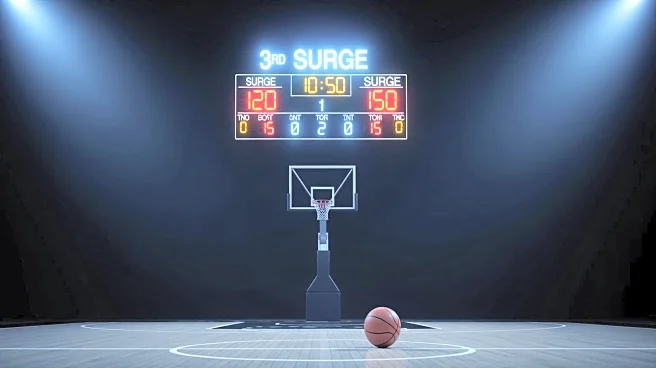What's Happening?
President Trump and his advisors are facing growing concerns over the prolonged government shutdown, which was initially expected to deliver a swift political victory for Republicans. The stalemate has emboldened Democratic lawmakers and left voters divided on who is to blame, complicating the political landscape for Trump. Early polling shows that Americans are equally likely to fault Trump and congressional Democrats for the impasse. The White House is preparing for mass layoffs as part of its strategy to increase pressure, but there is uncertainty about how this will affect public opinion. The shutdown has not generated significant outrage, with voters seemingly accustomed to such political drama.
Why It's Important?
The prolonged government shutdown presents a complex political challenge for President Trump and the Republican Party. The lack of a clear resolution and divided public opinion could weaken the party's position and impact future elections. The shutdown's economic consequences, including potential layoffs and furloughs, may further strain public support. Democrats have maintained unity in their demands, complicating efforts to resolve the impasse. The situation underscores the unpredictability of political strategies and the potential for long-term repercussions on public policy and party dynamics.
What's Next?
The White House and Republican leaders are preparing for a prolonged messaging battle, with Democrats planning for a shutdown that could extend into mid-October or later. The Trump administration is considering using the shutdown to advance priorities such as downsizing agencies and cutting funds to projects in blue states. However, this approach risks shifting public opinion against Republicans. The expiration of enhanced Affordable Care Act subsidies looms, adding urgency to GOP efforts to resolve the issue. Bipartisan negotiations may be necessary to address healthcare concerns and prevent steep cost increases for millions of Americans.
Beyond the Headlines
The shutdown highlights broader issues of political polarization and governance challenges in Washington. The divided blame among voters reflects a growing disillusionment with traditional political processes and the perceived dysfunction in government. The situation may prompt discussions on the need for reform and more effective negotiation strategies to prevent future shutdowns. The impact on federal employees and vulnerable populations raises ethical considerations about the use of political leverage in budgetary disputes.









